afterLoad (456.47KB) (724μs)
afterInitialise (1.28MB) (10.26ms)
afterRoute (869.87KB) (4.61ms)
beforeRenderComponent com_tags (20.52KB) (292μs)
afterRenderComponent com_tags (3.98MB) (68.24ms)
afterDispatch (27.11KB) (1.66ms)
beforeRenderRawModule mod_articles_category (READ MORE...) (372.12KB) (4.64ms)
Before Access::preloadComponents (all components) (56.7KB) (516μs)
After Access::preloadComponents (all components) (103.05KB) (639μs)
Before Access::getAssetRules (id:8 name:com_content) (840B) (15μs)
After Access::getAssetRules (id:8 name:com_content) (7.05KB) (42μs)
afterRenderRawModule mod_articles_category (READ MORE...) (5.08KB) (35.89ms)
beforeRenderRawModule mod_tags_popular (Search) (4.81KB) (27μs)
afterRenderRawModule mod_tags_popular (Search) (1.48KB) (21.45ms)
beforeRenderRawModule mod_custom (Remember to download Heart Healthy Seniors) (816B) (34μs)
afterRenderRawModule mod_custom (Remember to download Heart Healthy Seniors) (4.86KB) (235μs)
beforeRenderRawModule mod_custom (Get additionel and more detailed knowledge ) (752B) (14μs)
afterRenderRawModule mod_custom (Get additionel and more detailed knowledge ) (1.67KB) (35μs)
beforeRenderRawModule mod_custom (BOOST YOUR IMMUNE DEFENSE) (608B) (10μs)
afterRenderRawModule mod_custom (BOOST YOUR IMMUNE DEFENSE) (928B) (20μs)
beforeRenderRawModule mod_custom (Are you taking supplements) (736B) (9μs)
afterRenderRawModule mod_custom (Are you taking supplements) (1.03KB) (17μs)
beforeRenderRawModule mod_custom (Antiaging) (720B) (8μs)
afterRenderRawModule mod_custom (Antiaging) (1.02KB) (18μs)
beforeRenderRawModule mod_custom (Exercise) (720B) (9μs)
afterRenderRawModule mod_custom (Exercise) (1.02KB) (16μs)
beforeRenderRawModule mod_custom (Check this before you buy a Q10 product) (752B) (7μs)
afterRenderRawModule mod_custom (Check this before you buy a Q10 product) (944B) (17μs)
beforeRenderRawModule mod_custom (Chronic fatigue tied Alan to his bed but Q10 capsules saved him:) (245.53KB) (1.9ms)
afterRenderRawModule mod_custom (Chronic fatigue tied Alan to his bed but Q10 capsules saved him:) (960B) (42μs)
beforeRenderModule mod_custom (Chronic fatigue tied Alan to his bed but Q10 capsules saved him:) (768B) (4μs)
afterRenderModule mod_custom (Chronic fatigue tied Alan to his bed but Q10 capsules saved him:) (1.3KB) (64μs)
beforeRenderRawModule mod_custom (Cholesterol-lowering without side effects:) (368B) (13μs)
afterRenderRawModule mod_custom (Cholesterol-lowering without side effects:) (2.19KB) (22μs)
beforeRenderModule mod_custom (Cholesterol-lowering without side effects:) (752B) (2μs)
afterRenderModule mod_custom (Cholesterol-lowering without side effects:) (1.28KB) (28μs)
beforeRenderModule mod_articles_category (READ MORE...) (21.32KB) (307μs)
afterRenderModule mod_articles_category (READ MORE...) (1.25KB) (44μs)
beforeRenderModule mod_tags_popular (Search) (5.17KB) (12μs)
afterRenderModule mod_tags_popular (Search) (1.27KB) (24μs)
beforeRenderModule mod_custom (Remember to download Heart Healthy Seniors) (1.17KB) (10μs)
afterRenderModule mod_custom (Remember to download Heart Healthy Seniors) (1.3KB) (21μs)
beforeRenderModule mod_custom (Get additionel and more detailed knowledge ) (368B) (9μs)
afterRenderModule mod_custom (Get additionel and more detailed knowledge ) (1.3KB) (19μs)
beforeRenderModule mod_custom (BOOST YOUR IMMUNE DEFENSE) (224B) (8μs)
afterRenderModule mod_custom (BOOST YOUR IMMUNE DEFENSE) (1.28KB) (18μs)
beforeRenderModule mod_custom (Are you taking supplements) (352B) (8μs)
afterRenderModule mod_custom (Are you taking supplements) (1.28KB) (19μs)
beforeRenderModule mod_custom (Antiaging) (336B) (8μs)
afterRenderModule mod_custom (Antiaging) (1.27KB) (18μs)
beforeRenderModule mod_custom (Exercise) (336B) (8μs)
afterRenderModule mod_custom (Exercise) (1.25KB) (18μs)
beforeRenderModule mod_custom (Check this before you buy a Q10 product) (352B) (8μs)
afterRenderModule mod_custom (Check this before you buy a Q10 product) (1.28KB) (19μs)
beforeRenderRawModule mod_menu (Main menu-US) (20.94KB) (460μs)
afterRenderRawModule mod_menu (Main menu-US) (156.66KB) (1.33ms)
beforeRenderModule mod_menu (Main menu-US) (720B) (4μs)
afterRenderModule mod_menu (Main menu-US) (4.36KB) (55μs)
beforeRenderRawModule mod_languages (Sprogskift) (3.44KB) (16μs)
afterRenderRawModule mod_languages (Sprogskift) (26.82KB) (1.67ms)
beforeRenderModule mod_languages (Sprogskift) (720B) (5μs)
afterRenderModule mod_languages (Sprogskift) (5.31KB) (21μs)
beforeRenderRawModule mod_finder () (6.34KB) (10μs)
afterRenderRawModule mod_finder () (238.66KB) (1.95ms)
beforeRenderModule mod_finder () (704B) (5μs)
afterRenderModule mod_finder () (5.79KB) (37μs)
beforeRenderRawModule mod_custom () (6.62KB) (144μs)
afterRenderRawModule mod_custom () (22.66KB) (916μs)
beforeRenderModule mod_custom () (704B) (5μs)
afterRenderModule mod_custom () (1.23KB) (55μs)
beforeRenderRawModule mod_menu (Main menu-US) (5.07KB) (108μs)
afterRenderRawModule mod_menu (Main menu-US) (5.8KB) (684μs)
beforeRenderModule mod_menu (Main menu-US) (720B) (7μs)
afterRenderModule mod_menu (Main menu-US) (1.25KB) (43μs)
beforeRenderRawModule mod_languages (Sprogskift Mobil) (912B) (15μs)
afterRenderRawModule mod_languages (Sprogskift Mobil) (3.89KB) (668μs)
beforeRenderModule mod_languages (Sprogskift Mobil) (720B) (3μs)
afterRenderModule mod_languages (Sprogskift Mobil) (1.27KB) (31μs)
beforeRenderRawModule mod_finder () (2.3KB) (9μs)
afterRenderRawModule mod_finder () (6.29KB) (528μs)
beforeRenderModule mod_finder () (704B) (4μs)
afterRenderModule mod_finder () (1.23KB) (41μs)
beforeRenderRawModule mod_custom () (8.66KB) (163μs)
afterRenderRawModule mod_custom () (904B) (122μs)
beforeRenderModule mod_custom () (704B) (2μs)
afterRenderModule mod_custom () (2.43KB) (21μs)
beforeRenderRawModule mod_custom () (688B) (88μs)
afterRenderRawModule mod_custom () (896B) (107μs)
beforeRenderModule mod_custom () (704B) (3μs)
afterRenderModule mod_custom () (2.71KB) (23μs)
afterRender (836.12KB) (7.12ms)
| 1 x afterRenderComponent com_tags (3.98MB) (40.34%) | 68.24ms |
| 1 x afterRenderRawModule mod_articles_category (READ MORE...) (5.08KB) (21.22%) | 35.89ms |
| 1 x afterRenderRawModule mod_tags_popular (Search) (1.48KB) (12.68%) | 21.45ms |
| 1 x afterInitialise (1.28MB) (6.06%) | 10.26ms |
| 1 x afterRender (836.12KB) (4.21%) | 7.12ms |
| 1 x beforeRenderRawModule mod_articles_category (READ MORE...) (372.12KB) (2.74%) | 4.64ms |
| 1 x afterRoute (869.87KB) (2.72%) | 4.61ms |
| 1 x afterRenderRawModule mod_finder () (238.66KB) (1.15%) | 1.95ms |
| 1 x beforeRenderRawModule mod_custom (Chronic fatigue tied Alan to his bed but Q10 capsules saved him:) (245.53KB) (1.12%) | 1.90ms |
| 1 x afterRenderRawModule mod_languages (Sprogskift) (26.82KB) (0.99%) | 1.67ms |
| 1 x afterDispatch (27.11KB) (0.98%) | 1.66ms |
| 1 x afterRenderRawModule mod_menu (Main menu-US) (156.66KB) (0.79%) | 1.33ms |
| 1 x afterRenderRawModule mod_custom () (22.66KB) (0.54%) | 916μs |
| 1 x afterLoad (456.47KB) (0.43%) | 724μs |
| 1 x afterRenderRawModule mod_menu (Main menu-US) (5.8KB) (0.4%) | 684μs |
| 1 x afterRenderRawModule mod_languages (Sprogskift Mobil) (3.89KB) (0.39%) | 668μs |
| 1 x After Access::preloadComponents (all components) (103.05KB) (0.38%) | 639μs |
| 1 x afterRenderRawModule mod_finder () (6.29KB) (0.31%) | 528μs |
| 1 x Before Access::preloadComponents (all components) (56.7KB) (0.3%) | 516μs |
| 1 x beforeRenderRawModule mod_menu (Main menu-US) (20.94KB) (0.27%) | 460μs |
| 1 x beforeRenderModule mod_articles_category (READ MORE...) (21.32KB) (0.18%) | 307μs |
| 1 x beforeRenderComponent com_tags (20.52KB) (0.17%) | 292μs |
| 1 x afterRenderRawModule mod_custom (Remember to download Heart Healthy Seniors) (4.86KB) (0.14%) | 235μs |
| 1 x beforeRenderRawModule mod_custom () (8.66KB) (0.1%) | 163μs |
| 1 x beforeRenderRawModule mod_custom () (6.62KB) (0.09%) | 144μs |
| 1 x afterRenderRawModule mod_custom () (904B) (0.07%) | 122μs |
| 1 x beforeRenderRawModule mod_menu (Main menu-US) (5.07KB) (0.06%) | 108μs |
| 1 x afterRenderRawModule mod_custom () (896B) (0.06%) | 107μs |
| 1 x beforeRenderRawModule mod_custom () (688B) (0.05%) | 88μs |
| 1 x afterRenderModule mod_custom (Chronic fatigue tied Alan to his bed but Q10 capsules saved him:) (1.3KB) (0.04%) | 64μs |
| 1 x afterRenderModule mod_menu (Main menu-US) (4.36KB) (0.03%) | 55μs |
| 1 x afterRenderModule mod_custom () (1.23KB) (0.03%) | 55μs |
| 1 x afterRenderModule mod_articles_category (READ MORE...) (1.25KB) (0.03%) | 44μs |
| 1 x afterRenderModule mod_menu (Main menu-US) (1.25KB) (0.03%) | 43μs |
| 1 x After Access::getAssetRules (id:8 name:com_content) (7.05KB) (0.02%) | 42μs |
| 1 x afterRenderRawModule mod_custom (Chronic fatigue tied Alan to his bed but Q10 capsules saved him:) (960B) (0.02%) | 42μs |
| 1 x afterRenderModule mod_finder () (1.23KB) (0.02%) | 41μs |
| 1 x afterRenderModule mod_finder () (5.79KB) (0.02%) | 37μs |
| 1 x afterRenderRawModule mod_custom (Get additionel and more detailed knowledge ) (1.67KB) (0.02%) | 35μs |
| 1 x beforeRenderRawModule mod_custom (Remember to download Heart Healthy Seniors) (816B) (0.02%) | 34μs |
| 1 x afterRenderModule mod_languages (Sprogskift Mobil) (1.27KB) (0.02%) | 31μs |
| 1 x afterRenderModule mod_custom (Cholesterol-lowering without side effects:) (1.28KB) (0.02%) | 28μs |
| 1 x beforeRenderRawModule mod_tags_popular (Search) (4.81KB) (0.02%) | 27μs |
| 1 x afterRenderModule mod_tags_popular (Search) (1.27KB) (0.01%) | 24μs |
| 1 x afterRenderModule mod_custom () (2.71KB) (0.01%) | 23μs |
| 1 x afterRenderRawModule mod_custom (Cholesterol-lowering without side effects:) (2.19KB) (0.01%) | 22μs |
| 1 x afterRenderModule mod_custom (Remember to download Heart Healthy Seniors) (1.3KB) (0.01%) | 21μs |
| 1 x afterRenderModule mod_languages (Sprogskift) (5.31KB) (0.01%) | 21μs |
| 1 x afterRenderModule mod_custom () (2.43KB) (0.01%) | 21μs |
| 1 x afterRenderRawModule mod_custom (BOOST YOUR IMMUNE DEFENSE) (928B) (0.01%) | 20μs |
| 1 x afterRenderModule mod_custom (Are you taking supplements) (1.28KB) (0.01%) | 19μs |
| 1 x afterRenderModule mod_custom (Check this before you buy a Q10 product) (1.28KB) (0.01%) | 19μs |
| 1 x afterRenderModule mod_custom (Get additionel and more detailed knowledge ) (1.3KB) (0.01%) | 19μs |
| 1 x afterRenderRawModule mod_custom (Antiaging) (1.02KB) (0.01%) | 18μs |
| 1 x afterRenderModule mod_custom (Antiaging) (1.27KB) (0.01%) | 18μs |
| 1 x afterRenderModule mod_custom (Exercise) (1.25KB) (0.01%) | 18μs |
| 1 x afterRenderModule mod_custom (BOOST YOUR IMMUNE DEFENSE) (1.28KB) (0.01%) | 18μs |
| 1 x afterRenderRawModule mod_custom (Are you taking supplements) (1.03KB) (0.01%) | 17μs |
| 1 x afterRenderRawModule mod_custom (Check this before you buy a Q10 product) (944B) (0.01%) | 17μs |
| 1 x afterRenderRawModule mod_custom (Exercise) (1.02KB) (0.01%) | 16μs |
| 1 x beforeRenderRawModule mod_languages (Sprogskift) (3.44KB) (0.01%) | 16μs |
| 1 x Before Access::getAssetRules (id:8 name:com_content) (840B) (0.01%) | 15μs |
| 1 x beforeRenderRawModule mod_languages (Sprogskift Mobil) (912B) (0.01%) | 15μs |
| 1 x beforeRenderRawModule mod_custom (Get additionel and more detailed knowledge ) (752B) (0.01%) | 14μs |
| 1 x beforeRenderRawModule mod_custom (Cholesterol-lowering without side effects:) (368B) (0.01%) | 13μs |
| 1 x beforeRenderModule mod_tags_popular (Search) (5.17KB) (0.01%) | 12μs |
| 2 x beforeRenderModule mod_menu (Main menu-US) (720B) (0.01%) | 11μs |
| 1 x beforeRenderRawModule mod_custom (BOOST YOUR IMMUNE DEFENSE) (608B) (0.01%) | 10μs |
| 1 x beforeRenderModule mod_custom (Remember to download Heart Healthy Seniors) (1.17KB) (0.01%) | 10μs |
| 1 x beforeRenderRawModule mod_finder () (6.34KB) (0.01%) | 10μs |
| 3 x beforeRenderModule mod_custom () (704B) (0.01%) | 10μs |
| 1 x beforeRenderRawModule mod_custom (Are you taking supplements) (736B) (0.01%) | 9μs |
| 1 x beforeRenderModule mod_custom (Get additionel and more detailed knowledge ) (368B) (0.01%) | 9μs |
| 1 x beforeRenderRawModule mod_finder () (2.3KB) (0.01%) | 9μs |
| 1 x beforeRenderRawModule mod_custom (Exercise) (720B) (0.01%) | 9μs |
| 2 x beforeRenderModule mod_finder () (704B) (0.01%) | 9μs |
| 1 x beforeRenderModule mod_custom (BOOST YOUR IMMUNE DEFENSE) (224B) (0%) | 8μs |
| 1 x beforeRenderModule mod_custom (Are you taking supplements) (352B) (0%) | 8μs |
| 1 x beforeRenderRawModule mod_custom (Antiaging) (720B) (0%) | 8μs |
| 1 x beforeRenderModule mod_custom (Antiaging) (336B) (0%) | 8μs |
| 1 x beforeRenderModule mod_custom (Exercise) (336B) (0%) | 8μs |
| 1 x beforeRenderModule mod_custom (Check this before you buy a Q10 product) (352B) (0%) | 8μs |
| 1 x beforeRenderRawModule mod_custom (Check this before you buy a Q10 product) (752B) (0%) | 7μs |
| 1 x beforeRenderModule mod_languages (Sprogskift) (720B) (0%) | 5μs |
| 1 x beforeRenderModule mod_custom (Chronic fatigue tied Alan to his bed but Q10 capsules saved him:) (768B) (0%) | 4μs |
| 1 x beforeRenderModule mod_languages (Sprogskift Mobil) (720B) (0%) | 3μs |
| 1 x beforeRenderModule mod_custom (Cholesterol-lowering without side effects:) (752B) (0%) | 2μs |
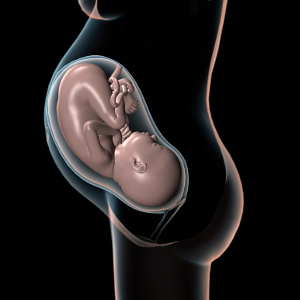 Iodine is involved in the body’s production of thyroid hormones, and we humans need plenty of iodine throughout life, especially during periods such as fetal development and child development. Iodine is also important for brain development and cognitive skills. Severe iodine deficiency during pregnancy and during a child’s first years of life may result in stunted growth and/or mental retardation, but there has been uncertainty about how a minor iodine deficiency affects the child before and after birth. In a review article that is published in Nutrients, the authors look closer at iodine’s role in fertility and child growth. Apparently, iodine deficiencies are quite common, and we even need selenium and other nutrients to secure a well-functioning thyroid gland.
Iodine is involved in the body’s production of thyroid hormones, and we humans need plenty of iodine throughout life, especially during periods such as fetal development and child development. Iodine is also important for brain development and cognitive skills. Severe iodine deficiency during pregnancy and during a child’s first years of life may result in stunted growth and/or mental retardation, but there has been uncertainty about how a minor iodine deficiency affects the child before and after birth. In a review article that is published in Nutrients, the authors look closer at iodine’s role in fertility and child growth. Apparently, iodine deficiencies are quite common, and we even need selenium and other nutrients to secure a well-functioning thyroid gland.








 Around one in six pregnancies results in spontaneous abortion. Although there can be different reasons for this, scientists have found that eating a healthy diet with lots of vegetables, fruit, fish, shellfish, eggs, and grains can lower the risk by over 50 percent. This was shown in a meta-analysis from the University of Birmingham in England. Earlier research shows that selenium, a trace element that many people are deficient in, plays a particularly important role.
Around one in six pregnancies results in spontaneous abortion. Although there can be different reasons for this, scientists have found that eating a healthy diet with lots of vegetables, fruit, fish, shellfish, eggs, and grains can lower the risk by over 50 percent. This was shown in a meta-analysis from the University of Birmingham in England. Earlier research shows that selenium, a trace element that many people are deficient in, plays a particularly important role. A new British study that is published in British Journal of Nutrition shows that getting too little vitamin D during pregnancy has a negative effect on the social development and motor skills of the toddler. Vitamin D is believed to play a role in brain development. It is vital for the pregnant mother to pay careful attention to getting enough vitamin D all year round, as our modern lifestyle with indoor activities, our frequent use of sunscreen with high sun factor, being overweight, and having dark skin contribute to the widespread deficiency of this nutrient.
A new British study that is published in British Journal of Nutrition shows that getting too little vitamin D during pregnancy has a negative effect on the social development and motor skills of the toddler. Vitamin D is believed to play a role in brain development. It is vital for the pregnant mother to pay careful attention to getting enough vitamin D all year round, as our modern lifestyle with indoor activities, our frequent use of sunscreen with high sun factor, being overweight, and having dark skin contribute to the widespread deficiency of this nutrient.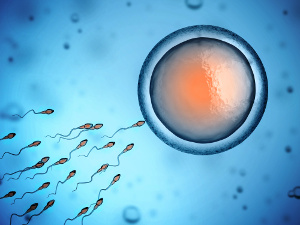 Impaired sperm quality if one of the major reasons for involuntary infertility. Studies show that oxidative stress, an imbalance between harmful free radicals and protective antioxidants, causes damage to sperm cells. In a review article that is published in Reproductive Sciences, a group of researchers look closer at different molecular mechanisms and how vitamins C, E, selenium, zinc, and coenzyme Q10 plus other antioxidants protect the vulnerable sperm cells.
Impaired sperm quality if one of the major reasons for involuntary infertility. Studies show that oxidative stress, an imbalance between harmful free radicals and protective antioxidants, causes damage to sperm cells. In a review article that is published in Reproductive Sciences, a group of researchers look closer at different molecular mechanisms and how vitamins C, E, selenium, zinc, and coenzyme Q10 plus other antioxidants protect the vulnerable sperm cells. After giving birth, the mother’s adaptability and resources are put to the test. Also, the mother’s “baby brain” tends to take over. Unfortunately, many new mothers get the baby blues, and around 10 percent develop an actual postpartum depression that requires immediate attention. It is important to focus on the underlying causes that include the course of the delivery plus hormonal, biological, social, and emotional changes.
After giving birth, the mother’s adaptability and resources are put to the test. Also, the mother’s “baby brain” tends to take over. Unfortunately, many new mothers get the baby blues, and around 10 percent develop an actual postpartum depression that requires immediate attention. It is important to focus on the underlying causes that include the course of the delivery plus hormonal, biological, social, and emotional changes. There really is no need to have an upper safe intake limit for folic acid, and we ought to enrich flour with this nutrient to prevent children from being born with potentially disabling or life-threatening brain or spinal cord defects. This is part of the conclusion of a new study from Queen Mary University of London, and it supports an earlier study from Aarhus University in Denmark. Folic acid deficiencies, which are rather common, may lead to fatigue, poor memory, dementia, and a number of other health problems later in life. It is therefore important that we focus on this essential nutrient.
There really is no need to have an upper safe intake limit for folic acid, and we ought to enrich flour with this nutrient to prevent children from being born with potentially disabling or life-threatening brain or spinal cord defects. This is part of the conclusion of a new study from Queen Mary University of London, and it supports an earlier study from Aarhus University in Denmark. Folic acid deficiencies, which are rather common, may lead to fatigue, poor memory, dementia, and a number of other health problems later in life. It is therefore important that we focus on this essential nutrient. Allergic diseases such as asthma, hay fever, food allergies and contact dermatitis are becoming increasingly common. It makes a big difference to breastfeed for at least six months because breast milk contains various compounds that strengthen the child’s gut flora and immune defense. Vitamin D supplements are also important, and Icelandic research suggests that is pays off to continue giving them to children until the age of six years. Unfortunately, many parents forget to give their children vitamin D until the age of two, as recommended. Also, many children get too little sunlight during the summer period and don’t get vitamin D supplements when it is winter, and that is something we all need at these latitudes.
Allergic diseases such as asthma, hay fever, food allergies and contact dermatitis are becoming increasingly common. It makes a big difference to breastfeed for at least six months because breast milk contains various compounds that strengthen the child’s gut flora and immune defense. Vitamin D supplements are also important, and Icelandic research suggests that is pays off to continue giving them to children until the age of six years. Unfortunately, many parents forget to give their children vitamin D until the age of two, as recommended. Also, many children get too little sunlight during the summer period and don’t get vitamin D supplements when it is winter, and that is something we all need at these latitudes.

 Vitamin B12 is important for the development of the brain, and young children with low levels of the nutrient are challenged when it comes to solving cognitive tests such as puzzles, letter recognition, and the ability to understand the feelings of other children. Vitamin B12-deficient children are therefore more vulnerable and generally have a more difficult start in life. Researchers have demonstrated this in a study that is published in the American Journal of Clinical Nutrition.
Vitamin B12 is important for the development of the brain, and young children with low levels of the nutrient are challenged when it comes to solving cognitive tests such as puzzles, letter recognition, and the ability to understand the feelings of other children. Vitamin B12-deficient children are therefore more vulnerable and generally have a more difficult start in life. Researchers have demonstrated this in a study that is published in the American Journal of Clinical Nutrition. According to a study from Columbia University’s College of Dental Medicine and Vagelos College of Physicians and Surgeons, there are certain compounds in fish oil that can prevent pregnancy complications that follow in the wake of a regular bacterial infection. These complications include miscarriage, preterm delivery, and infant death. There are an estimated 15 million premature deliveries per year on a global scale, and each year around one million babies die as a result of this. Preterm infants also have an increased risk of vision impairment, retarded physical development, and learning disabilities. The researchers therefore suggest new strategies for recommending nutritional supplements and fish oil supplements during pregnancy.
According to a study from Columbia University’s College of Dental Medicine and Vagelos College of Physicians and Surgeons, there are certain compounds in fish oil that can prevent pregnancy complications that follow in the wake of a regular bacterial infection. These complications include miscarriage, preterm delivery, and infant death. There are an estimated 15 million premature deliveries per year on a global scale, and each year around one million babies die as a result of this. Preterm infants also have an increased risk of vision impairment, retarded physical development, and learning disabilities. The researchers therefore suggest new strategies for recommending nutritional supplements and fish oil supplements during pregnancy.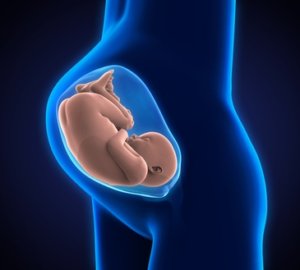
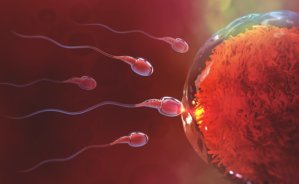
 The need for the trace element selenium is increased in pregnant and breastfeeding women because it supports a host of different proteins that are particularly important for tissue growth. Also, selenium supports different antioxidants that protect the unborn baby’s organs and tissues. A new review article published in Nutrients shows that lack of selenium during pregnancy may result in oxidative stress, stunted growth, and low birth weight. This may eventually have consequences for the baby’s development, cognitive skills, and health in general. The authors also mention that an expecting mother’s alcohol abuse may have a more negative health impact if she is selenium-deficient. It is a problem that selenium deficiency is such a widespread problem in Europe and other parts of the world.
The need for the trace element selenium is increased in pregnant and breastfeeding women because it supports a host of different proteins that are particularly important for tissue growth. Also, selenium supports different antioxidants that protect the unborn baby’s organs and tissues. A new review article published in Nutrients shows that lack of selenium during pregnancy may result in oxidative stress, stunted growth, and low birth weight. This may eventually have consequences for the baby’s development, cognitive skills, and health in general. The authors also mention that an expecting mother’s alcohol abuse may have a more negative health impact if she is selenium-deficient. It is a problem that selenium deficiency is such a widespread problem in Europe and other parts of the world. If you are pregnant it may be wise to eat salmon. According to a new study it lowers your child's risk of developing asthma, which is a rather common ailment. But what is it in salmon that prevents asthma, and what about those who dislike the taste of fish?
If you are pregnant it may be wise to eat salmon. According to a new study it lowers your child's risk of developing asthma, which is a rather common ailment. But what is it in salmon that prevents asthma, and what about those who dislike the taste of fish?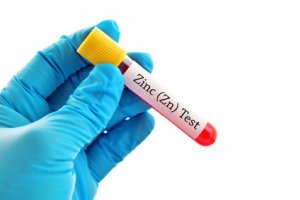 According to a new study that is published in the British Journal of Nutrition, even minor zinc deficiencies may cause poor digestion, skin problems, and fatigue - and lead to numerous other health problems in the long run. You should therefore avoid zinc shortages, and people with poor diets, vegans, vegetarians, and older people should make sure to get enough zinc.
According to a new study that is published in the British Journal of Nutrition, even minor zinc deficiencies may cause poor digestion, skin problems, and fatigue - and lead to numerous other health problems in the long run. You should therefore avoid zinc shortages, and people with poor diets, vegans, vegetarians, and older people should make sure to get enough zinc. Fish oil contains the omega-3 fatty acids, EPA and DHA, which are important for normal development of the baby’s brain and immune defense. Pregnant women who eat oily fish several times a week help their babies against developing asthma later in life. Oily fish and fish oil supplements have similar effects. This was shown in two studies from the University of South Florida in Tampa, USA. However, pregnant women should avoid predatory fish like tuna that contain mercury. For those who dislike the taste of fish or who simply do not eat enough, fish oil supplements are an option.
Fish oil contains the omega-3 fatty acids, EPA and DHA, which are important for normal development of the baby’s brain and immune defense. Pregnant women who eat oily fish several times a week help their babies against developing asthma later in life. Oily fish and fish oil supplements have similar effects. This was shown in two studies from the University of South Florida in Tampa, USA. However, pregnant women should avoid predatory fish like tuna that contain mercury. For those who dislike the taste of fish or who simply do not eat enough, fish oil supplements are an option. Premature delivery increases the baby’s risk of being born with developmental disturbances or dying within its first months of life. It is commonly known that omega-3 fatty acids are important for normal pregnancy. According to a new and updated Cochrane review article, overweight people are at increased risk of lacking omega-3 fatty acids, and supplementing with omega-3 may lower their risk of giving birth too soon. Although the new study supports earlier research, there was something that surprised the scientists.
Premature delivery increases the baby’s risk of being born with developmental disturbances or dying within its first months of life. It is commonly known that omega-3 fatty acids are important for normal pregnancy. According to a new and updated Cochrane review article, overweight people are at increased risk of lacking omega-3 fatty acids, and supplementing with omega-3 may lower their risk of giving birth too soon. Although the new study supports earlier research, there was something that surprised the scientists. Asthma is the leading disease among children and adolescents in the Western world, and the rate has been going up for the past 20 years. A new Danish study that is published in the New England Journal of Medicine shows that pregnant women who take supplements of fish oil are much less likely to give birth to children that develop asthma later on. The question is how much fish oil it takes to obtain the positive effect.
Asthma is the leading disease among children and adolescents in the Western world, and the rate has been going up for the past 20 years. A new Danish study that is published in the New England Journal of Medicine shows that pregnant women who take supplements of fish oil are much less likely to give birth to children that develop asthma later on. The question is how much fish oil it takes to obtain the positive effect. Omega-3 fatty acids are essential, as they are needed to make cell membranes and support a host of biochemical functions. During pregnancy, there is a particular need for the two omega-3 fatty acids, EPA and DHA to support the growth and brain development of the child. Fish oil is a good source of these two fatty acids, and supplementing with them in the third trimester can prolong the pregnancy and increase birth weight, according to a Scandinavian study published in Journal of Nutrition. The study supports earlier studies of pregnant women, where it has been shown that fish oil lowers the risk of preterm delivery and complications such as development of disorders and death.
Omega-3 fatty acids are essential, as they are needed to make cell membranes and support a host of biochemical functions. During pregnancy, there is a particular need for the two omega-3 fatty acids, EPA and DHA to support the growth and brain development of the child. Fish oil is a good source of these two fatty acids, and supplementing with them in the third trimester can prolong the pregnancy and increase birth weight, according to a Scandinavian study published in Journal of Nutrition. The study supports earlier studies of pregnant women, where it has been shown that fish oil lowers the risk of preterm delivery and complications such as development of disorders and death. According to two clinical studies, daily supplementation with the omega-3 fatty acid, DHA (docosahexaenoic acid), which is found in fish oil, may prevent thousands of premature deliveries – before the 34th week of pregnancy. In addition, both mother and child may have other befits from the active compounds in fish oil.
According to two clinical studies, daily supplementation with the omega-3 fatty acid, DHA (docosahexaenoic acid), which is found in fish oil, may prevent thousands of premature deliveries – before the 34th week of pregnancy. In addition, both mother and child may have other befits from the active compounds in fish oil. There are several reasons why pregnant women have an increased need for folic acid. Overweight women should even pay special attention, as folic acid reduces their risk of having babies who are also overweight. This was seen in a new American study that got published in JAMA Pediatrics.
There are several reasons why pregnant women have an increased need for folic acid. Overweight women should even pay special attention, as folic acid reduces their risk of having babies who are also overweight. This was seen in a new American study that got published in JAMA Pediatrics. Folic acid is important for fetal growth and development, and that is why pregnant women have an increased need for the nutrient. It is commonly known that supplementation with folic acid during pregnancy lowers the risk of spina bifida. A new study shows that maternal intake of folic acid in the late part of pregnancy is of vital importance for the baby’s lingual development at the age of two years. This was shown in a study that is published in Epidemiology. Unfortunately, many pregnant women forget to take their folic acid supplements.
Folic acid is important for fetal growth and development, and that is why pregnant women have an increased need for the nutrient. It is commonly known that supplementation with folic acid during pregnancy lowers the risk of spina bifida. A new study shows that maternal intake of folic acid in the late part of pregnancy is of vital importance for the baby’s lingual development at the age of two years. This was shown in a study that is published in Epidemiology. Unfortunately, many pregnant women forget to take their folic acid supplements. The number of children diagnosed with autism has increased steadily over the past decades, and a number of factors can cause the disease. Now, scientists from the University of California and other institutions in the United States have discovered that pregnant women who get the recommended amount of folic acid or increase their intake right around the time of conception have a lower risk of giving birth to a child that develops autism caused by pesticide exposure.
The number of children diagnosed with autism has increased steadily over the past decades, and a number of factors can cause the disease. Now, scientists from the University of California and other institutions in the United States have discovered that pregnant women who get the recommended amount of folic acid or increase their intake right around the time of conception have a lower risk of giving birth to a child that develops autism caused by pesticide exposure. Folic acid plays a role in tissue growth and fetal development during pregnancy. A new study that was presented at an annual congress for British psychologists in Brighton shows that folic acid supplements may even improve the child’s psychological development. This is vital for the child’s ability to handle his or her own feelings and managing socially.
Folic acid plays a role in tissue growth and fetal development during pregnancy. A new study that was presented at an annual congress for British psychologists in Brighton shows that folic acid supplements may even improve the child’s psychological development. This is vital for the child’s ability to handle his or her own feelings and managing socially.
 Lack of selenium increases the risk of impaired fertility and complications in connection with pregnancy and birth. Because selenium deficiencies are rather common, both men and women should ideally make sure that they get enough of this essential trace element that is involved in various functions - right from conception to delivery.
Lack of selenium increases the risk of impaired fertility and complications in connection with pregnancy and birth. Because selenium deficiencies are rather common, both men and women should ideally make sure that they get enough of this essential trace element that is involved in various functions - right from conception to delivery. PMS (Premenstrual Syndrome) entails a long list of symptoms such as headaches, mood swings, fatigue, irritability, fluid retention, and a strong craving for sweets and stimulants - and even a desire for divorce.
PMS (Premenstrual Syndrome) entails a long list of symptoms such as headaches, mood swings, fatigue, irritability, fluid retention, and a strong craving for sweets and stimulants - and even a desire for divorce. Fish is good source of omega-3 fatty acids and other nutrients that are important for normal development of the fetus. Still, there has been a lot of discussion about whether or not pregnant women should eat fish, as this is also a source of mercury and other environmental toxins. A whole new study shows that pregnant women who eat moderate amounts of fish tend to give birth to children with a lower risk of diabetes and overweight later in life compared with women that eat very little fish or none at all. Beware that fish often contains mercury but it also contains selenium, which has a protective effect.
Fish is good source of omega-3 fatty acids and other nutrients that are important for normal development of the fetus. Still, there has been a lot of discussion about whether or not pregnant women should eat fish, as this is also a source of mercury and other environmental toxins. A whole new study shows that pregnant women who eat moderate amounts of fish tend to give birth to children with a lower risk of diabetes and overweight later in life compared with women that eat very little fish or none at all. Beware that fish often contains mercury but it also contains selenium, which has a protective effect. An increasing number of young women risk giving birth to babies with an insufficiently developed mental capacity due to iodine deficiency. The deficiency may be a result of nutrient-depleted soil and altered diets with fewer iodine-containing animal sources. Also, many people have a preference for sea salt and Himalayan salt rather than iodine-enriched salt. Iodine deficiency appears to be most prevalent among women who eat plant-based vegan diets, but it is also seen among women with normal diets that include meat. This was demonstrated in a study from the University of South Australia. The challenge for pregnant women is to get adequate amounts of iodine and to find iodine-enriched table salt that has proper quality and does not contain anti-caking agents such as aluminum.
An increasing number of young women risk giving birth to babies with an insufficiently developed mental capacity due to iodine deficiency. The deficiency may be a result of nutrient-depleted soil and altered diets with fewer iodine-containing animal sources. Also, many people have a preference for sea salt and Himalayan salt rather than iodine-enriched salt. Iodine deficiency appears to be most prevalent among women who eat plant-based vegan diets, but it is also seen among women with normal diets that include meat. This was demonstrated in a study from the University of South Australia. The challenge for pregnant women is to get adequate amounts of iodine and to find iodine-enriched table salt that has proper quality and does not contain anti-caking agents such as aluminum. Many women gain weight during pregnancy and have great difficulty with losing the excess pounds afterwards. According to a new study that was presented at an international endocrinology conference, a possible explanation may be lack of vitamin B12, which is a nutrient that helps the body metabolize fat. The researchers therefore suggest that it may be a good idea to take a vitamin B12 supplement during pregnancy, as overweight may eventually lead to health problems such as type 2 diabetes. There can also be emotional consequences of being overweight.
Many women gain weight during pregnancy and have great difficulty with losing the excess pounds afterwards. According to a new study that was presented at an international endocrinology conference, a possible explanation may be lack of vitamin B12, which is a nutrient that helps the body metabolize fat. The researchers therefore suggest that it may be a good idea to take a vitamin B12 supplement during pregnancy, as overweight may eventually lead to health problems such as type 2 diabetes. There can also be emotional consequences of being overweight.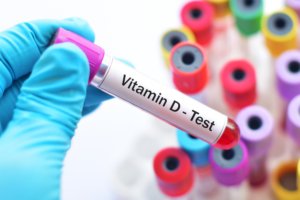 Expecting mothers should pay careful attention to getting enough vitamin D all year round, especially because vitamin D deficiencies are so commonplace, to begin with. Lack of vitamin D at birth and the first years of life is associated with an increased risk of infant hypertension, and the problem can even continue to adulthood. This was shown in a study that is published in the science journal Hypertension. The researchers advise pregnant women to have their vitamin D levels measured, and they even recommend vitamin D supplements for pregnant women and children as a way of preventing elevated blood pressure later in life.
Expecting mothers should pay careful attention to getting enough vitamin D all year round, especially because vitamin D deficiencies are so commonplace, to begin with. Lack of vitamin D at birth and the first years of life is associated with an increased risk of infant hypertension, and the problem can even continue to adulthood. This was shown in a study that is published in the science journal Hypertension. The researchers advise pregnant women to have their vitamin D levels measured, and they even recommend vitamin D supplements for pregnant women and children as a way of preventing elevated blood pressure later in life.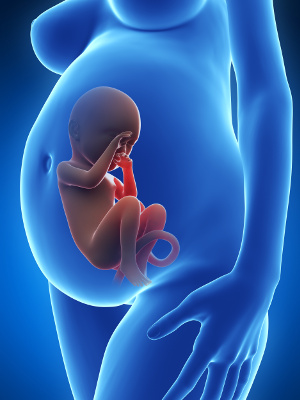 The number of small children affected by asthma and allergy is a growing worldwide problem. Vitamin D deficiency is also an increasing problem among pregnant women and newborn babies. Vitamin D is important for a well-functioning immune defense and for that reason, a team of Dutch scientists have looked closer at the relation in a review article. They conclude that having sufficient vitamin D in the blood during pregnancy and the first years of life can lower the risk of developing asthma and allergies. The scientists also observed that vitamin D supplements can lessen the burden of these widespread diseases. Their study is published in Nutrients.
The number of small children affected by asthma and allergy is a growing worldwide problem. Vitamin D deficiency is also an increasing problem among pregnant women and newborn babies. Vitamin D is important for a well-functioning immune defense and for that reason, a team of Dutch scientists have looked closer at the relation in a review article. They conclude that having sufficient vitamin D in the blood during pregnancy and the first years of life can lower the risk of developing asthma and allergies. The scientists also observed that vitamin D supplements can lessen the burden of these widespread diseases. Their study is published in Nutrients. The number of children and adolescents with ADHD has skyrocketed in the past decade, and the human and socioeconomic costs are enormous. A major cause may be the widespread problems with vitamin D deficiency, according to a study from Turku University in Finland. It does not make things any easier that sun awareness campaigns fail to give people an alternative way of getting enough vitamin D all year around, and it is also a problem that many pregnant women don’t take their supplements as recommended.
The number of children and adolescents with ADHD has skyrocketed in the past decade, and the human and socioeconomic costs are enormous. A major cause may be the widespread problems with vitamin D deficiency, according to a study from Turku University in Finland. It does not make things any easier that sun awareness campaigns fail to give people an alternative way of getting enough vitamin D all year around, and it is also a problem that many pregnant women don’t take their supplements as recommended. Vitamin D controls a variety of processes in the brain and that is important for the child in a number of different ways. According to a new study from University of Queensland, Australia, there is an increased risk of autism – especially among boys – if the mother lacks vitamin D during her pregnancy. The explanation lies in the fact that the vitamin deficiency can affect levels of sex hormones in the brain. Several studies link vitamin D deficiency to autism and show that vitamin D supplements can improve hyperactivity and other signs of impaired functioning in children with autism.
Vitamin D controls a variety of processes in the brain and that is important for the child in a number of different ways. According to a new study from University of Queensland, Australia, there is an increased risk of autism – especially among boys – if the mother lacks vitamin D during her pregnancy. The explanation lies in the fact that the vitamin deficiency can affect levels of sex hormones in the brain. Several studies link vitamin D deficiency to autism and show that vitamin D supplements can improve hyperactivity and other signs of impaired functioning in children with autism. It has long been known that vitamin D deficiencies increase the risk of sclerosis. According to a study that is published in JAMA Neurology, having too little vitamin D is even a problem during pregnancy, as it increases the child's risk of developing sclerosis later in life.
It has long been known that vitamin D deficiencies increase the risk of sclerosis. According to a study that is published in JAMA Neurology, having too little vitamin D is even a problem during pregnancy, as it increases the child's risk of developing sclerosis later in life. A team of scientists from Oregon State University in the United States has managed to explain why lack of vitamin E may cause neurological damage to the developing fetus, and why it increases the risk of spontaneous miscarriage. Their study is published in the science journal Free Radical Biology and Medicine and here, the scientists underline how important it is for both women who are pregnant and those plan pregnancy to get enough vitamin E.
A team of scientists from Oregon State University in the United States has managed to explain why lack of vitamin E may cause neurological damage to the developing fetus, and why it increases the risk of spontaneous miscarriage. Their study is published in the science journal Free Radical Biology and Medicine and here, the scientists underline how important it is for both women who are pregnant and those plan pregnancy to get enough vitamin E.
 Preeclampsia is a serious pregnancy disorder with elevated blood pressure, proteinuria, and life-threatening complications in severe cases. It has already been reported that folic acid supplements help prevent preeclampsia in pregnancy. According to a new study that is published in Pregnancy Hypertension, taking even larger quantities of folic acid seem to offer additional protection. Unfortunately, many pregnant women forget to take folic acid supplements that are normally recommended as a way of avoiding spina bifida.
Preeclampsia is a serious pregnancy disorder with elevated blood pressure, proteinuria, and life-threatening complications in severe cases. It has already been reported that folic acid supplements help prevent preeclampsia in pregnancy. According to a new study that is published in Pregnancy Hypertension, taking even larger quantities of folic acid seem to offer additional protection. Unfortunately, many pregnant women forget to take folic acid supplements that are normally recommended as a way of avoiding spina bifida. Fewer children have eczema around the age of 12 months if their mothers had higher levels of a particular B vitamin during pregnancy, according to a new study from the University of Southampton.
Fewer children have eczema around the age of 12 months if their mothers had higher levels of a particular B vitamin during pregnancy, according to a new study from the University of Southampton. Congenital heart defects are the most common birth defect on a global scale. The condition is associated with a number of different complications and even comes with an increased risk of infant death. Maternal nutritional status is vital for the development of the fetus, and a team of Chinese scientists has looked closer at how selenium, zinc, and copper affect the development of the disease. They found that a relatively high intake of selenium and zinc lowers the risk of congenital heart defects. Therefore, the scientists call for increased focus on these two minerals during pregnancy and advocate the use of supplements.
Congenital heart defects are the most common birth defect on a global scale. The condition is associated with a number of different complications and even comes with an increased risk of infant death. Maternal nutritional status is vital for the development of the fetus, and a team of Chinese scientists has looked closer at how selenium, zinc, and copper affect the development of the disease. They found that a relatively high intake of selenium and zinc lowers the risk of congenital heart defects. Therefore, the scientists call for increased focus on these two minerals during pregnancy and advocate the use of supplements. Magnesium plays a role in a variety of enzyme processes that are involved in 80 percent of the body’s metabolic functions, and a magnesium deficiency can affect different genes and diseases. Such deficiencies are very common, especially among women. A Russian study of pregnant women and women with different types of hormonal imbalances shows that four weeks of magnesium supplementation can improve health and quality of life by several parameters.
Magnesium plays a role in a variety of enzyme processes that are involved in 80 percent of the body’s metabolic functions, and a magnesium deficiency can affect different genes and diseases. Such deficiencies are very common, especially among women. A Russian study of pregnant women and women with different types of hormonal imbalances shows that four weeks of magnesium supplementation can improve health and quality of life by several parameters. Preeclampsia is a precursor of eclampsia, a condition characterized by spasms and seizures that can be life-threatening for the expecting mother and her unborn child. According to a new review article that is published in the science journal Cureus, injections of magnesium sulfate have been tested as part of the treatment for severe preeclampsia and related spasms. This therapy form has also been introduced in Denmark. It is important during pregnancy to get enough magnesium to prevent eclampsia.
Preeclampsia is a precursor of eclampsia, a condition characterized by spasms and seizures that can be life-threatening for the expecting mother and her unborn child. According to a new review article that is published in the science journal Cureus, injections of magnesium sulfate have been tested as part of the treatment for severe preeclampsia and related spasms. This therapy form has also been introduced in Denmark. It is important during pregnancy to get enough magnesium to prevent eclampsia.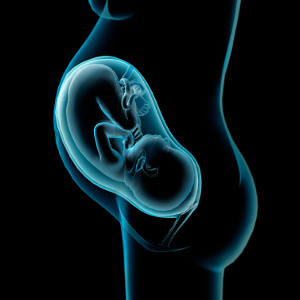 The two omega-3 fatty acids, EPA and DHA, are of vital importance to the development of a baby’s brain and central nervous system during pregnancy and the first years of life. The best sources of these fatty acids are oily fish and fish oil supplements. There is widespread deficiency of these fatty acids, which increases the risk of a lower IQ, ADHD, depression, or other neurological disturbances in the baby, according to a review article published in Nutrients. It is also important for brain health to balance one’s intake of omega-3 and omega-6.
The two omega-3 fatty acids, EPA and DHA, are of vital importance to the development of a baby’s brain and central nervous system during pregnancy and the first years of life. The best sources of these fatty acids are oily fish and fish oil supplements. There is widespread deficiency of these fatty acids, which increases the risk of a lower IQ, ADHD, depression, or other neurological disturbances in the baby, according to a review article published in Nutrients. It is also important for brain health to balance one’s intake of omega-3 and omega-6.

 Overweight or obesity during pregnancy is linked to low vitamin D levels. This negatively affects the health of the expecting mother, and in the long run it increases the child's risk of weak bones, overweight, type-2 diabetes, and allergies
Overweight or obesity during pregnancy is linked to low vitamin D levels. This negatively affects the health of the expecting mother, and in the long run it increases the child's risk of weak bones, overweight, type-2 diabetes, and allergies Polycystic ovary syndrome (PCOS) is the leading cause of infertility and hormone disturbances in women of childbearing age. The condition is often a result of insulin resistance, an imbalance in the sugar metabolism that is typically accompanied by fatigue, abdominal obesity (apple-shaped body), overweight, and an increased risk of cardiovascular disease and type-2 diabetes. It makes perfect sense to stick with a blood sugar-stabilizing diet and to include a chromium supplement that increases insulin sensitivity and helps, indirectly, regulate the hormone balance. As a bonus effect, it becomes a lot easier to obtain and maintain your ideal weight.
Polycystic ovary syndrome (PCOS) is the leading cause of infertility and hormone disturbances in women of childbearing age. The condition is often a result of insulin resistance, an imbalance in the sugar metabolism that is typically accompanied by fatigue, abdominal obesity (apple-shaped body), overweight, and an increased risk of cardiovascular disease and type-2 diabetes. It makes perfect sense to stick with a blood sugar-stabilizing diet and to include a chromium supplement that increases insulin sensitivity and helps, indirectly, regulate the hormone balance. As a bonus effect, it becomes a lot easier to obtain and maintain your ideal weight. Impaired fertility and involuntary childlessness are common in the Nordic countries and there can be a number of reasons for these serious problems. However, according to a large Finnish study that is published in Nutrients, vitamin D deficiency, which is a widespread problem, may increase women’s risk of fertility problems and cause them to have a miscarriage.
Impaired fertility and involuntary childlessness are common in the Nordic countries and there can be a number of reasons for these serious problems. However, according to a large Finnish study that is published in Nutrients, vitamin D deficiency, which is a widespread problem, may increase women’s risk of fertility problems and cause them to have a miscarriage.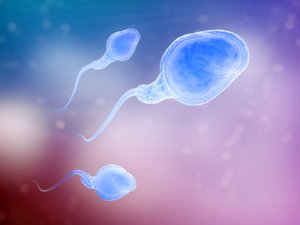 Approximately one in seven couple is childless. Although there can be many underlying causes, poor sperm quality is an increasing problem. It may be caused by a lack of certain nutrients and exposure to different environmental factors, but, fortunately, it possible to improve sperm quality and increase the chances of conception by means of relevant dietary adjustments and the use of specific supplements. New research shows that epigenetic factors (factors that affect the environment of the sperm cell) determine sperm health and are therefore crucial for activating the genes of the sperm cell so the fetus can develop.
Approximately one in seven couple is childless. Although there can be many underlying causes, poor sperm quality is an increasing problem. It may be caused by a lack of certain nutrients and exposure to different environmental factors, but, fortunately, it possible to improve sperm quality and increase the chances of conception by means of relevant dietary adjustments and the use of specific supplements. New research shows that epigenetic factors (factors that affect the environment of the sperm cell) determine sperm health and are therefore crucial for activating the genes of the sperm cell so the fetus can develop. Pregnant women are advised not to smoke, as this may harm the unborn baby. However, not all pregnant smokers are able to quit their habit. A new American study shows that vitamin C supplementation can reduce the risk to the baby’s lungs and improve the baby’s breathing.
Pregnant women are advised not to smoke, as this may harm the unborn baby. However, not all pregnant smokers are able to quit their habit. A new American study shows that vitamin C supplementation can reduce the risk to the baby’s lungs and improve the baby’s breathing.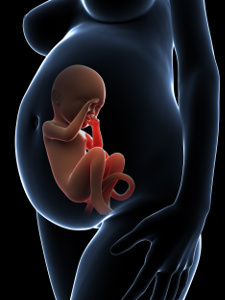 During pregnancy, the unborn child needs different nutrients for proper development of its brain and nervous system. Even if the mother eats a balanced diet, it can be difficult to get enough selenium for a number of reasons. In a new Italian animal study that is published in Nutrients, scientists have looked closer at selenium’s role during pregnancy and lactation. They observed that even minor selenium deficiencies can have a negative effect on the offspring’s brain development and behavior. This study supports earlier human studies showing how vital it is for the mother to get plenty of selenium during pregnancy and breastfeeding.
During pregnancy, the unborn child needs different nutrients for proper development of its brain and nervous system. Even if the mother eats a balanced diet, it can be difficult to get enough selenium for a number of reasons. In a new Italian animal study that is published in Nutrients, scientists have looked closer at selenium’s role during pregnancy and lactation. They observed that even minor selenium deficiencies can have a negative effect on the offspring’s brain development and behavior. This study supports earlier human studies showing how vital it is for the mother to get plenty of selenium during pregnancy and breastfeeding.
 It is important for the health of the unborn child that the expecting mother keeps her vitamin D levels high during her entire pregnancy. According to a study from Southampton University, vitamin D supplementation is less effective, if a pregnant woman starts with low levels of vitamin D in the early stage of her pregnancy, has major and sudden weight gain, and gives birth during winter.
It is important for the health of the unborn child that the expecting mother keeps her vitamin D levels high during her entire pregnancy. According to a study from Southampton University, vitamin D supplementation is less effective, if a pregnant woman starts with low levels of vitamin D in the early stage of her pregnancy, has major and sudden weight gain, and gives birth during winter.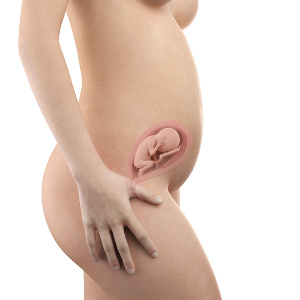
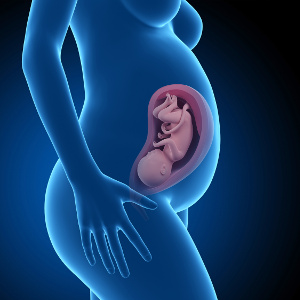
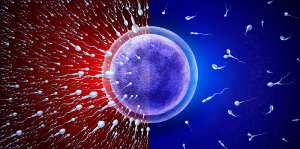
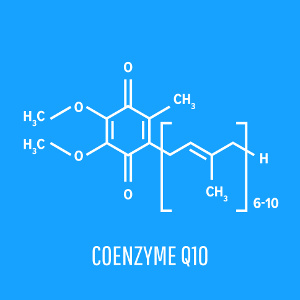 Q10 has a key role in the cellular energy turnover and also serves as an antioxidant that protects the body against oxidative stress. Disruptions in the energy-producing mitochondria in cells and oxidative stress may also be involved in different types of hormone disturbances that affect the thyroid gland, pancreas, sex glands, pituitary gland, and the adrenal glands. In a new review article that is published in Antioxidants, scientists look closer at Q10’s role with particular focus on hyperthyroidism, type 2 diabetes, and poor sperm quality, all of which can be corrected through supplementation.
Q10 has a key role in the cellular energy turnover and also serves as an antioxidant that protects the body against oxidative stress. Disruptions in the energy-producing mitochondria in cells and oxidative stress may also be involved in different types of hormone disturbances that affect the thyroid gland, pancreas, sex glands, pituitary gland, and the adrenal glands. In a new review article that is published in Antioxidants, scientists look closer at Q10’s role with particular focus on hyperthyroidism, type 2 diabetes, and poor sperm quality, all of which can be corrected through supplementation. Q10 is a unique compound with a key role in cellular energy turnover. It also serves as a powerful antioxidant. The body is able to synthesize most of the Q10 that it needs but as we grow older, our endogenous synthesis decreases, making us vulnerable in different ways. Cholesterol-lowering medicine and certain types of disease are also associated with lower levels of Q10 in the body. In a new review article, a group of scientists have scrutinized hundreds of Q10 studies that have been published in the years 2010-2020. They are able to conclude that Q10 is of particular importance to the heart, circulatory system, fertility, muscles, eyes and vision, and the ageing process. Things like migraines, chronic fatigue syndrome, and neurodegenerative diseases such as Parkinson’s and Alzheimer’s disease are also addressed. The body has difficulty with absorbing Q10 from food and supplements so it is recommendable to always choose a pharmaceutical-grade Q10 preparation with documented bioavailability.
Q10 is a unique compound with a key role in cellular energy turnover. It also serves as a powerful antioxidant. The body is able to synthesize most of the Q10 that it needs but as we grow older, our endogenous synthesis decreases, making us vulnerable in different ways. Cholesterol-lowering medicine and certain types of disease are also associated with lower levels of Q10 in the body. In a new review article, a group of scientists have scrutinized hundreds of Q10 studies that have been published in the years 2010-2020. They are able to conclude that Q10 is of particular importance to the heart, circulatory system, fertility, muscles, eyes and vision, and the ageing process. Things like migraines, chronic fatigue syndrome, and neurodegenerative diseases such as Parkinson’s and Alzheimer’s disease are also addressed. The body has difficulty with absorbing Q10 from food and supplements so it is recommendable to always choose a pharmaceutical-grade Q10 preparation with documented bioavailability. An international team of researchers has just completed a huge study of the possible link between maternal DNA, selenium deficiency, and preterm labor. Earlier studies have shown that women with low blood selenium have an increased risk of preterm birth and that selenium supplementation may lower that risk. A problem in that respect is that climate changes and soil depletion may increase the risk of selenium deficiencies, especially in Europe.
An international team of researchers has just completed a huge study of the possible link between maternal DNA, selenium deficiency, and preterm labor. Earlier studies have shown that women with low blood selenium have an increased risk of preterm birth and that selenium supplementation may lower that risk. A problem in that respect is that climate changes and soil depletion may increase the risk of selenium deficiencies, especially in Europe. Selenium is a trace element with a number of essential functions. An estimated one billion people worldwide get too little dietary selenium. The problem is mainly a result of nutrient-depleted farmland. Moreover, blood levels of selenium drop drastically in connection with COVID-19 infections, serious illness, and pregnancy because the body has an increased need for the nutrient. Altogether, selenium deficiency increases the risk of complicated COVID-19 infections, autoimmune diseases such as rheumatoid arthritis, Hashimoto’s thyroiditis, preterm delivery, and miscarriage. Supplementation may help optimize blood levels of selenium, which can be relevant for preventing and treating a number of common diseases, according to an article that is published in International Journal of Medical Sciences.
Selenium is a trace element with a number of essential functions. An estimated one billion people worldwide get too little dietary selenium. The problem is mainly a result of nutrient-depleted farmland. Moreover, blood levels of selenium drop drastically in connection with COVID-19 infections, serious illness, and pregnancy because the body has an increased need for the nutrient. Altogether, selenium deficiency increases the risk of complicated COVID-19 infections, autoimmune diseases such as rheumatoid arthritis, Hashimoto’s thyroiditis, preterm delivery, and miscarriage. Supplementation may help optimize blood levels of selenium, which can be relevant for preventing and treating a number of common diseases, according to an article that is published in International Journal of Medical Sciences. Lack of selenium, an essential trace element, may cause thyroid disorders, cardiovascular disease, virus infections, AIDS, infertility, neurological disturbances, and cancer. An estimated one billion people worldwide are selenium-deficient. This is mainly a result of nutrient-depleted soil, which is a real problem in places like Europe. For decades, scientists have been warning about this problem, and a lot suggests that we need more than the officially recommended intake to protect ourselves effectively against disease, according to a review article published in StatPearls.
Lack of selenium, an essential trace element, may cause thyroid disorders, cardiovascular disease, virus infections, AIDS, infertility, neurological disturbances, and cancer. An estimated one billion people worldwide are selenium-deficient. This is mainly a result of nutrient-depleted soil, which is a real problem in places like Europe. For decades, scientists have been warning about this problem, and a lot suggests that we need more than the officially recommended intake to protect ourselves effectively against disease, according to a review article published in StatPearls. Involuntary childlessness has become increasingly common. Many women find themselves in a race against time, and their biological clock keeps ticking louder and louder. Fertility therapies, miscarriages, preeclampsia, and other complications during pregnancy contribute to the physical and emotional burden. In a new Australian study that is published in Nutrients, the authors write about selenium and zinc and how these nutrients play an important role in fertility and a healthy pregnancy. They also address the problems with widespread selenium deficiency and point out that environmental toxins like mercury deplete levels of vital selenium-containing proteins in the body. The scientists point to supplements for fighting deficiencies, just like folic acid and iron are routinely recommended to pregnant women. It pays off to choose selenium yeast with multiple organic selenium compounds and organic zinc to help improve the bioavailability and utilization of the nutrients.
Involuntary childlessness has become increasingly common. Many women find themselves in a race against time, and their biological clock keeps ticking louder and louder. Fertility therapies, miscarriages, preeclampsia, and other complications during pregnancy contribute to the physical and emotional burden. In a new Australian study that is published in Nutrients, the authors write about selenium and zinc and how these nutrients play an important role in fertility and a healthy pregnancy. They also address the problems with widespread selenium deficiency and point out that environmental toxins like mercury deplete levels of vital selenium-containing proteins in the body. The scientists point to supplements for fighting deficiencies, just like folic acid and iron are routinely recommended to pregnant women. It pays off to choose selenium yeast with multiple organic selenium compounds and organic zinc to help improve the bioavailability and utilization of the nutrients. Selenium has an overlooked role in sperm quality and healthy pregnancies. A team of scientists from Romania has looked closer at blood levels of different selenium-containing antioxidants and found that low levels are significantly correlated with poor sperm quality. The scientists also explain that lack of selenium increases the risk of pregnancy-related complications, miscarriage, and preterm delivery. Both selenium deficiencies and infertility are common problems so selenium supplementation may be worth considering. For decades, Danish farmers have added selenium to animal fodder as a way of improving the fertility and general health of the animals.
Selenium has an overlooked role in sperm quality and healthy pregnancies. A team of scientists from Romania has looked closer at blood levels of different selenium-containing antioxidants and found that low levels are significantly correlated with poor sperm quality. The scientists also explain that lack of selenium increases the risk of pregnancy-related complications, miscarriage, and preterm delivery. Both selenium deficiencies and infertility are common problems so selenium supplementation may be worth considering. For decades, Danish farmers have added selenium to animal fodder as a way of improving the fertility and general health of the animals. Selenium is a trace element that supports over 30 essential selenoproteins, which have numerous functions. For the first time ever, a study of Mexican children reveals that lack of selenium delays the growth of pubic hairs and the development of sex organs in boys. It is a known fact that the agricultural soil in Mexico is low in selenium and that affects the entire food chain. The same is the case in Europe, for which reason farmers for decades have supplemented livestock with selenium as a way of improving fertility and preventing a number of deficiency problems. The big question is to what extent can selenium deficiency problems explain the impaired sperm quality that has been observed among young men? An estimated 500 million to one billon people worldwide get too little selenium from their diet.
Selenium is a trace element that supports over 30 essential selenoproteins, which have numerous functions. For the first time ever, a study of Mexican children reveals that lack of selenium delays the growth of pubic hairs and the development of sex organs in boys. It is a known fact that the agricultural soil in Mexico is low in selenium and that affects the entire food chain. The same is the case in Europe, for which reason farmers for decades have supplemented livestock with selenium as a way of improving fertility and preventing a number of deficiency problems. The big question is to what extent can selenium deficiency problems explain the impaired sperm quality that has been observed among young men? An estimated 500 million to one billon people worldwide get too little selenium from their diet. Folic acid is of vital importance to fetal development which is why pregnant women have a much higher need for this nutrient. Although the Danish health authorities recommend that pregnant take folic acid supplements, some get started too late and others forget to take their supplements. In other countries, it is common practice to enrich flour with folic acid but apparently, the added quantity is insufficient. According to a new British study, many pregnant women still don’t get enough folic acid, which increases their risk of giving birth to a baby with neural tube defects that can lead to severe disabilities. Lack of folic acid can also affect the child’s mental development. The British researchers therefore recommend adding more folic acid to fluor as a way of preventing the birth defects. It’s simple and inexpensive and would also be relevant for Denmark.
Folic acid is of vital importance to fetal development which is why pregnant women have a much higher need for this nutrient. Although the Danish health authorities recommend that pregnant take folic acid supplements, some get started too late and others forget to take their supplements. In other countries, it is common practice to enrich flour with folic acid but apparently, the added quantity is insufficient. According to a new British study, many pregnant women still don’t get enough folic acid, which increases their risk of giving birth to a baby with neural tube defects that can lead to severe disabilities. Lack of folic acid can also affect the child’s mental development. The British researchers therefore recommend adding more folic acid to fluor as a way of preventing the birth defects. It’s simple and inexpensive and would also be relevant for Denmark. Poor sperm quality, which is a bit of a taboo, is one of the main causes of involuntary infertility. Evidence suggests that Western diets can impair sperm quality, whereas the Mediterranean diet does the opposite. Vegan diets are somewhat controversial, according to a review article published in International Journal of Molecular Sciences. Previous research has shown that supplementation with selenium, zinc, fish oil, and coenzyme Q10 can improve sperm cell quality.
Poor sperm quality, which is a bit of a taboo, is one of the main causes of involuntary infertility. Evidence suggests that Western diets can impair sperm quality, whereas the Mediterranean diet does the opposite. Vegan diets are somewhat controversial, according to a review article published in International Journal of Molecular Sciences. Previous research has shown that supplementation with selenium, zinc, fish oil, and coenzyme Q10 can improve sperm cell quality. Fish contains vitamin D, omega-3 fatty acids, selenium, and iodine, all of which are important for the fetus’ brain and development. However, fish also contains mercury and that discourages many pregnant women from eating fish. According to a new study that is published in NeuroToxicology, eating fish during pregnancy is actually not harmful at all, on the contrary, and the scientists behind the study argue that the precautionary guidelines need to be revised. Apparently, the selenium content in fish and seafood determines if mercury is dangerous or not.
Fish contains vitamin D, omega-3 fatty acids, selenium, and iodine, all of which are important for the fetus’ brain and development. However, fish also contains mercury and that discourages many pregnant women from eating fish. According to a new study that is published in NeuroToxicology, eating fish during pregnancy is actually not harmful at all, on the contrary, and the scientists behind the study argue that the precautionary guidelines need to be revised. Apparently, the selenium content in fish and seafood determines if mercury is dangerous or not. Hormonal imbalances have broad implications and increase the risk of chronic fatigue, overweight, impaired fertility, dry mucosa, hot flushes, slow metabolism, breast cancer, and many other problems. Lack of essential nutrients contributes to such disruptions of the sensitive hormone system. This is also the case with hormone-disrupting compounds.
Hormonal imbalances have broad implications and increase the risk of chronic fatigue, overweight, impaired fertility, dry mucosa, hot flushes, slow metabolism, breast cancer, and many other problems. Lack of essential nutrients contributes to such disruptions of the sensitive hormone system. This is also the case with hormone-disrupting compounds.

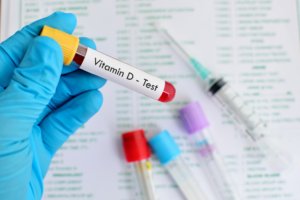
 Selenium is an essential trace element that supports a host of different proteins and antioxidants that are important for pregnancy. According to a new Norwegian population study that is published in the science journal Nutrients, lack of selenium during pregnancy may stunt the growth of the fetus and result in low birth weight. This may have consequences for the child’s growth, cognitive skills, and health. Selenium deficiencies are rather common in Norway and the rest of Europe and that is a problem.
Selenium is an essential trace element that supports a host of different proteins and antioxidants that are important for pregnancy. According to a new Norwegian population study that is published in the science journal Nutrients, lack of selenium during pregnancy may stunt the growth of the fetus and result in low birth weight. This may have consequences for the child’s growth, cognitive skills, and health. Selenium deficiencies are rather common in Norway and the rest of Europe and that is a problem.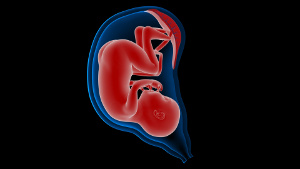 Vitamin D is of vital importance to the unborn child’s development of teeth, bones, immune defense, and various other things. The fetus is highly dependent on the mother’s vitamin D levels and that the nutrient can be transferred to the fetus and activated. A team of scientists has looked closer at the placenta and its role in helping the fetus utilize vitamin D. They hope their work can contribute to healthier pregnancies in the future.
Vitamin D is of vital importance to the unborn child’s development of teeth, bones, immune defense, and various other things. The fetus is highly dependent on the mother’s vitamin D levels and that the nutrient can be transferred to the fetus and activated. A team of scientists has looked closer at the placenta and its role in helping the fetus utilize vitamin D. They hope their work can contribute to healthier pregnancies in the future.
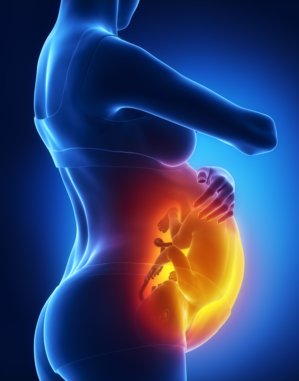 People in the Western part of the world consume far too much omega-6, primarily in the form of linoleic acid from vegetable oils and processed foods such as margarine, fries, chips, and ready meals. A new study that is published in The Journal of Physiology shows that this may be harmful during pregnancy and can increase the risk of complications and developmental disorders in the baby.
People in the Western part of the world consume far too much omega-6, primarily in the form of linoleic acid from vegetable oils and processed foods such as margarine, fries, chips, and ready meals. A new study that is published in The Journal of Physiology shows that this may be harmful during pregnancy and can increase the risk of complications and developmental disorders in the baby.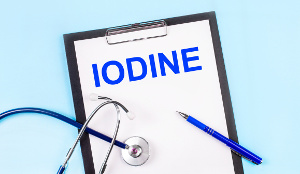 There is a trending global shift towards vegetarian or vegan diets. However, these diets come with a risk of lacking essential nutrients that are primarily found in animal food sources. According to a large meta-analysis of Western diets, one of them is iodine. Iodine deficiency is a worldwide problem and has serious consequences because of iodine’s vital role in the thyroid function, energy production, estrogen balance, fertility, and healthy pregnancy outcome.
There is a trending global shift towards vegetarian or vegan diets. However, these diets come with a risk of lacking essential nutrients that are primarily found in animal food sources. According to a large meta-analysis of Western diets, one of them is iodine. Iodine deficiency is a worldwide problem and has serious consequences because of iodine’s vital role in the thyroid function, energy production, estrogen balance, fertility, and healthy pregnancy outcome.
 A groundbreaking new Australian study shows that something as simple as a vitamin B3 supplement can prevent miscarriages and congenital defects of the heart and other organs. This is because the nutrient is involved in the body’s production of NAD, a molecule of vital importance to fetal development. Because vitamin B3 deficiencies are common, it is important to have increased focus on the vitamin, especially in connection with pregnancy.
A groundbreaking new Australian study shows that something as simple as a vitamin B3 supplement can prevent miscarriages and congenital defects of the heart and other organs. This is because the nutrient is involved in the body’s production of NAD, a molecule of vital importance to fetal development. Because vitamin B3 deficiencies are common, it is important to have increased focus on the vitamin, especially in connection with pregnancy. Babies and small children are less likely to develop croup if their mothers have taken high-dosed vitamin D and fish oil during their pregnancy, according to a Danish study, where scientists have studied this relation for the very first time. Vitamin D and fish oil also benefit the child’s immune defense and counteract the inflammation in the respiratory system that triggers croup. The two supplements even have a positive impact on the child’s bone health and nervous system, and they also help prevent asthma.
Babies and small children are less likely to develop croup if their mothers have taken high-dosed vitamin D and fish oil during their pregnancy, according to a Danish study, where scientists have studied this relation for the very first time. Vitamin D and fish oil also benefit the child’s immune defense and counteract the inflammation in the respiratory system that triggers croup. The two supplements even have a positive impact on the child’s bone health and nervous system, and they also help prevent asthma. Lack of vitamin D is rather common and is associated with a host of diseases that affect the teeth and gums. In children, a vitamin D deficiency may result in fragile teeth with weak enamel and an increased risk of cavities. Later in life, the vitamin deficiency may also increase the risk of periodontal disease and certain types of oral cancer, according to an article that is published in the scientific journal Nutrients. The authors refer to a number of clinical studies that point to vitamin D’s different functions with regard to dental health. Also, they mention that vitamin D deficiencies are widespread and write that it may be necessary to take a supplement for proper dental health.
Lack of vitamin D is rather common and is associated with a host of diseases that affect the teeth and gums. In children, a vitamin D deficiency may result in fragile teeth with weak enamel and an increased risk of cavities. Later in life, the vitamin deficiency may also increase the risk of periodontal disease and certain types of oral cancer, according to an article that is published in the scientific journal Nutrients. The authors refer to a number of clinical studies that point to vitamin D’s different functions with regard to dental health. Also, they mention that vitamin D deficiencies are widespread and write that it may be necessary to take a supplement for proper dental health. During pregnancy, vitamin D plays an important role in the bone development of the unborn child, in the brain, and in other functions. Maternal lack of vitamin D during pregnancy may therefore have serious consequences for the fetus and its development. This also goes for the development of neurons in the dopamine-producing area of the brain, which can most likely result in dysfunctions of the dopamine balance, a problem that is seen in young individuals and adults with schizophrenia. This was demonstrated in a new study that is published in Journal of Neurochemistry. The study supports an earlier review article where it was seen that early stages of psychotic disorders like schizophrenia are linked to severe deficiencies of vitamin D and other nutrients with vital importance to brain health, especially during pregnancy.
During pregnancy, vitamin D plays an important role in the bone development of the unborn child, in the brain, and in other functions. Maternal lack of vitamin D during pregnancy may therefore have serious consequences for the fetus and its development. This also goes for the development of neurons in the dopamine-producing area of the brain, which can most likely result in dysfunctions of the dopamine balance, a problem that is seen in young individuals and adults with schizophrenia. This was demonstrated in a new study that is published in Journal of Neurochemistry. The study supports an earlier review article where it was seen that early stages of psychotic disorders like schizophrenia are linked to severe deficiencies of vitamin D and other nutrients with vital importance to brain health, especially during pregnancy. Vitamin D is vital for normal development of the baby’s bones, cognitive skills, IQ, immune defense, and a number of other things. According to a new British study, however, a third of white infants lack vitamin D. The problem is even more pronounced in dark-skinned babies. Here, around half of them lack vitamin D. More focus is needed on pregnant women from exposed groups to help ensure that they get adequate amounts of the nutrient.
Vitamin D is vital for normal development of the baby’s bones, cognitive skills, IQ, immune defense, and a number of other things. According to a new British study, however, a third of white infants lack vitamin D. The problem is even more pronounced in dark-skinned babies. Here, around half of them lack vitamin D. More focus is needed on pregnant women from exposed groups to help ensure that they get adequate amounts of the nutrient.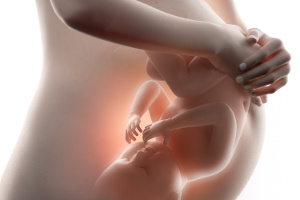 During a woman’s pregnancy, vitamin D is important for the growth, development, and general health of the baby. Apparently, maternal vitamin D deficiency during pregnancy increases the risk of boys developing more fat tissue during their first years of life, which makes them more prone to overweight in childhood and later in life. This was reported in a Spanish population study that is published in Nutrients. Because both overweight and vitamin D deficiency are so widespread, it is essential for pregnant women to make sure as a minimum to follow the official recommendations for vitamin D supplementation. Also, there is no read to avoid sun exposure because sunshine is our primary vitamin D source during the summer period. Just make sure not to get a sunburn.
During a woman’s pregnancy, vitamin D is important for the growth, development, and general health of the baby. Apparently, maternal vitamin D deficiency during pregnancy increases the risk of boys developing more fat tissue during their first years of life, which makes them more prone to overweight in childhood and later in life. This was reported in a Spanish population study that is published in Nutrients. Because both overweight and vitamin D deficiency are so widespread, it is essential for pregnant women to make sure as a minimum to follow the official recommendations for vitamin D supplementation. Also, there is no read to avoid sun exposure because sunshine is our primary vitamin D source during the summer period. Just make sure not to get a sunburn. Atopic dermatitis (eczema) is a widespread problem and a huge burden to both the child and its parents. According to a new study that is published in British Journal of Dermatology, high-dosed vitamin D supplementation of the mother during her pregnancy lowers the child’s risk of developing eczema within its first year of life. The pregnant women in the study got 25 micrograms of vitamin D daily, which is more than twice the amount that is currently recommended to expecting mothers. Health authorities already recommend all-year vitamin D supplementation to children up to the age of four years, so it appears that this measure can offer additional protection against eczema.
Atopic dermatitis (eczema) is a widespread problem and a huge burden to both the child and its parents. According to a new study that is published in British Journal of Dermatology, high-dosed vitamin D supplementation of the mother during her pregnancy lowers the child’s risk of developing eczema within its first year of life. The pregnant women in the study got 25 micrograms of vitamin D daily, which is more than twice the amount that is currently recommended to expecting mothers. Health authorities already recommend all-year vitamin D supplementation to children up to the age of four years, so it appears that this measure can offer additional protection against eczema.
 There is an increasing amount of science that links lack of vitamin D to autism. In a new study, 109 autistic children were given either a vitamin D supplement or placebo. According to the lead researcher, Dr. Khaled Saad, there was a distinct improvement in autism symptoms such as hyperactivity, social reclusion, and other function impairments in the children who took supplements of vitamin D, but not in the placebo group. The study is published in the Journal of Child Psychology and Psychiatry (2016).
There is an increasing amount of science that links lack of vitamin D to autism. In a new study, 109 autistic children were given either a vitamin D supplement or placebo. According to the lead researcher, Dr. Khaled Saad, there was a distinct improvement in autism symptoms such as hyperactivity, social reclusion, and other function impairments in the children who took supplements of vitamin D, but not in the placebo group. The study is published in the Journal of Child Psychology and Psychiatry (2016). In May 2017, new data linking vitamin D and fertility was presented at the European Congress of Endocrinology (ECE) in Lisbon. The new findings contribute to our understanding of vitamin D’s impact on male testosterone levels and of our knowledge about whether vitamin D supplements may actually improve fertility in both sexes. Involuntary infertility, a widespread problem, may be a result of many factors, but if the reason is a vitamin D deficiency, it is easy to treat with increased exposure to sunlight and the use of supplements to keep vitamin D levels optimal all year round.
In May 2017, new data linking vitamin D and fertility was presented at the European Congress of Endocrinology (ECE) in Lisbon. The new findings contribute to our understanding of vitamin D’s impact on male testosterone levels and of our knowledge about whether vitamin D supplements may actually improve fertility in both sexes. Involuntary infertility, a widespread problem, may be a result of many factors, but if the reason is a vitamin D deficiency, it is easy to treat with increased exposure to sunlight and the use of supplements to keep vitamin D levels optimal all year round. Around one billion people worldwide are believed to lack vitamin D. This gives cause for concern when it comes to public health, also with regard to pregnant women and their children. Several studies link vitamin D deficiency to a number of different pregnancy-related complications such as preeclampsia, increased risk of preterm delivery, and the need for a Caesarean section. There is also a risk of low birth weight, weak bones, and later development of bronchitis, asthma, type 1 diabetes, sclerosis, and autism, according to a review article published in Nutrients. The authors believe it is necessary to give supplements to help correct vitamin D deficiencies in the expecting mothers and even in the children after birth to prevent many of the diseases and complications linked to low vitamin D status.
Around one billion people worldwide are believed to lack vitamin D. This gives cause for concern when it comes to public health, also with regard to pregnant women and their children. Several studies link vitamin D deficiency to a number of different pregnancy-related complications such as preeclampsia, increased risk of preterm delivery, and the need for a Caesarean section. There is also a risk of low birth weight, weak bones, and later development of bronchitis, asthma, type 1 diabetes, sclerosis, and autism, according to a review article published in Nutrients. The authors believe it is necessary to give supplements to help correct vitamin D deficiencies in the expecting mothers and even in the children after birth to prevent many of the diseases and complications linked to low vitamin D status.

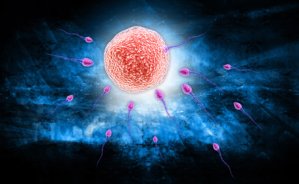 Once the sperm cell has penetrated the egg cell, sparks fly from zinc atoms in a fascinating fireworks display. This new discovery may help fertility doctors select the most best eggs for in-vitro fertilization (IVF). The discovery also has relevance for all others who wish a successful pregnancy. It all boils down to having adequate zinc stores in the body.
Once the sperm cell has penetrated the egg cell, sparks fly from zinc atoms in a fascinating fireworks display. This new discovery may help fertility doctors select the most best eggs for in-vitro fertilization (IVF). The discovery also has relevance for all others who wish a successful pregnancy. It all boils down to having adequate zinc stores in the body. Even minor zinc deficiencies may cause poor digestion, infections, skin problems, and fatigue – and many other diseases may occur along the way. A new study shows that a diet with as little as four extra mg of zinc daily may strengthen cellular DNA and help protect the body. The four milligrams of zinc are about the same as populations with deficiency symptoms can get by eating zinc-enriched wheat and rice.
Even minor zinc deficiencies may cause poor digestion, infections, skin problems, and fatigue – and many other diseases may occur along the way. A new study shows that a diet with as little as four extra mg of zinc daily may strengthen cellular DNA and help protect the body. The four milligrams of zinc are about the same as populations with deficiency symptoms can get by eating zinc-enriched wheat and rice.
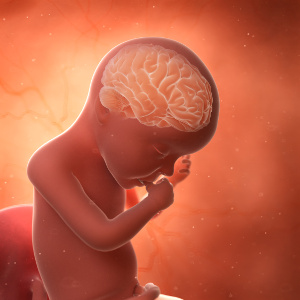 Zinc is involved in numerous enzyme processes and proteins that are of importance to fertility and pregnancy. The nutrient also plays a role in fetal brain development and the child’s health later in life, according to a review article that is published in the scientific journal, Nutrients. The authors address the fact that zinc deficiencies are rather common and account for around 20 per cent of infant deaths, typically around the time of birth. It is therefore important to get plenty of zinc throughout life – especially for women before, during, and after pregnancy and while they breastfeed.
Zinc is involved in numerous enzyme processes and proteins that are of importance to fertility and pregnancy. The nutrient also plays a role in fetal brain development and the child’s health later in life, according to a review article that is published in the scientific journal, Nutrients. The authors address the fact that zinc deficiencies are rather common and account for around 20 per cent of infant deaths, typically around the time of birth. It is therefore important to get plenty of zinc throughout life – especially for women before, during, and after pregnancy and while they breastfeed. "After about one week of taking the Q10 supplement I could feel a huge difference," says 23-year old Alan Piccini, who has been suffering from extreme fatigue and muscle aches ever since he was a child.
"After about one week of taking the Q10 supplement I could feel a huge difference," says 23-year old Alan Piccini, who has been suffering from extreme fatigue and muscle aches ever since he was a child. “Taking capsules with co-enzyme Q10 has freed me of the severe side effects of my cholesterol lowering medicine,” Mrs Franken explains.
“Taking capsules with co-enzyme Q10 has freed me of the severe side effects of my cholesterol lowering medicine,” Mrs Franken explains.